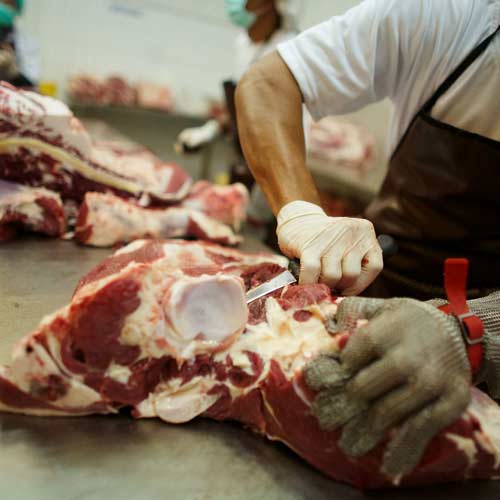Amid political debates over beef ban, country’s apex food export agency Agricultural and Food Products Export Development Authority (APEDA) feels that it is impossible to ban beef exports as it would hit the economy very hard.
Talking to dna, a senior officer of APEDA on condition of anonymity said, “When we are talking of beef, here the reference is mostly buffalo meat. It is the second largest product exported from country after rice. It gives revenue of over Rs 29,000 crore and banning it would be a big set back for the economy which no government no matter what their political affiliation could afford. Besides, it has no religious significance.” He added, “The political statements coming on the issue are misguiding people. The political leaders are themselves not aware what India is exporting.”
“In fact, under Modi’s Make in India mission, food processing is an important aspect and buffalo meat processing forms an important part of it,” he said adding that there are proposals for expansion in this industry too but refused to divulge the details.
The demand for Indian buffalo meat in international market sparked increase in 2012-13 where the product registered 27% growth, while for processed meat it declined by 28%. The main markets for Indian buffalo meat are Vietnam, Malaysia, Thailand, Saudi Arabia, Egypt and UAE.
The reason why Indian buffalo meat is in big demand is because of prices. In 2014, the Meat and Livestock report prepared by the Australian Bureau of Agricultural and Resource Economics and Sciences stated that while a kilogram of buffalo meat from India costs around US $2.88, Brazil and Australia sell it at US $4.52 and US $4.73, respectively. The same year India exported 1.56 million tonnes of buffalo meat popularly known as carabeef, bypassing leading exporting countries like Brazil and Australia which exported only 1.18 million tonnes and 1.07 million tonnes.
In 2014-15, India’s exports of animal products was Rs 33,128.30 crore and this included buffalo meat (Rs 29,282.60 crore), sheep/ goat meat (Rs 828.11 crore), poultry products (Rs 651.21 crore), dairy products (Rs 1,205.38 crore), animal casing (Rs 19.32 crore), processed meat (Rs 14.21 crore), other meat (Rs 2.67 crore), and natural honey (Rs 535.07 crore).
As per the ministry of Food Processing till March 31, 2014, India had 1623 registered slaughterhouses in the country. The top fives states being Maharashtra with 316 slaughterhouses, followed by Uttar Pradesh – 285, Andhra Pradesh – 183, Tamil Nadu – 130 and Karnataka – 96.
An official on condition of anonymity said, “Slaughterhouses are monitored by the state government through municipal authorities and it was not possible for Centre to monitor these and check if the animal being butchered is buffalo or cow. However, we haven’t received any reports of cow slaughtering by any of registered slaughterhouses.”
Only 31% Indians are vegetarians
In 2006, a state of the nation survey was conducted by the Centre for the Study of Developing Societies (CSDS) for Hindu-CNN-IBN. It revealed that only 31% Indians were vegetarians. The figures was even lower at 21% for families in which all members are vegetarians. The poll was conducted based on interviews with 14,680 respondents spread across 883 villages and urban areas in 19 states. After the survey was out, CSDS director Sanjay Kumar told the media that the figures did not come as a big surprise. It is a widespread perception that India is vegetarian.
India’s beef exports (Source: APEDA)
Year Quantity (MT) Value (lakhs)
2012-13 11,07,506.24 17,41,289.27
2013-14 14,49,758.64 26,45,781.58
2014-15 14,75,526.01 29,28,258.19









2 Comments
Tara Nath Ghimire
Fish-foul-animal meat is commerce. No sentiments here.
Tara Nath Ghimire
Rishi Muni people ate horse and cattle meat.